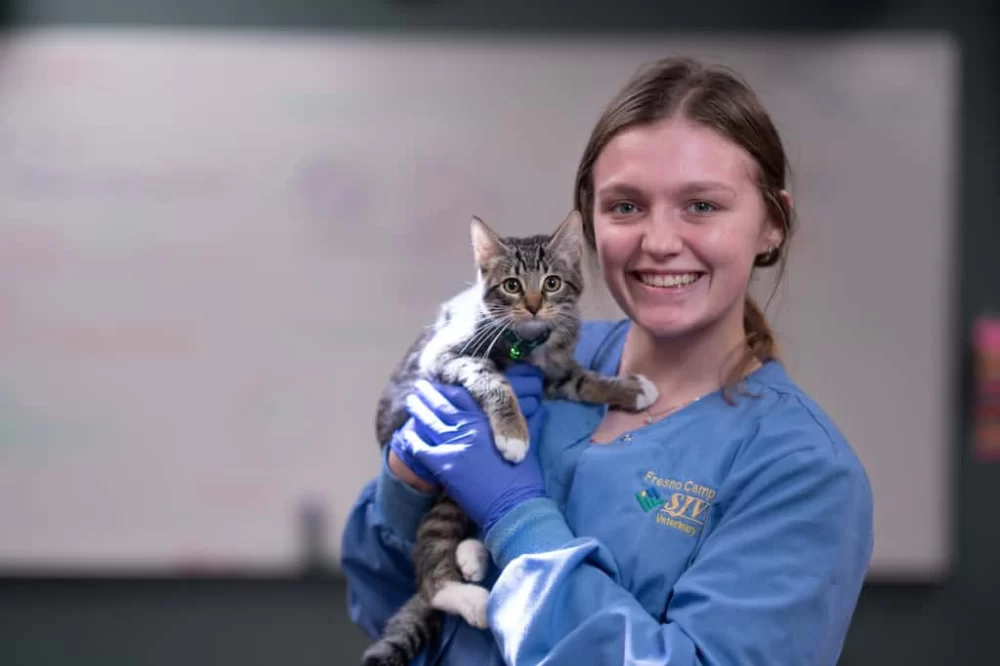What Degree Do You Need to Be a Veterinary Assistant?
- 1. The Importance of Education for a Veterinary Assistant
- 2. Types of Degrees You Can Pursue
- 3. Skills You Need to Succeed as a Veterinary Assistant
- 4. Career Prospects for Veterinary Assistants
- 5. Real-Life Story: Becoming a Veterinary Assistant
1. The Importance of Education for a Veterinary Assistant
When I first considered becoming a veterinary assistant, I had a lot of questions—what degree do I need, how long will it take, and what kind of responsibilities would I have? Over time, I discovered that education is one of the most important aspects of pursuing a career as a veterinary assistant. It’s not just about loving animals; it’s about being well-equipped with the right knowledge to care for them professionally and competently.
In many cases, a formal education in veterinary assisting can open doors and provide a competitive edge in the job market. While not all veterinary assistant positions require a formal degree, completing a specialized program can significantly boost your credibility and job prospects.
2. Types of Degrees You Can Pursue
So, what degree do you need to be a veterinary assistant? The good news is that there are several options, depending on your location and career goals. Here's what I found out:
- Associate's Degree in Veterinary Technology: This is one of the most comprehensive educational paths. It typically takes about two years to complete, and it prepares you for various roles in the veterinary field, including the opportunity to become a certified veterinary technician.
- Veterinary Assistant Certificate Program: A shorter program, usually lasting anywhere from 6 months to 1 year, designed specifically for those interested in becoming veterinary assistants. This program focuses on animal care basics, medical terminology, and basic office administration.
- On-the-job Training: Many veterinary assistants begin their careers with no formal degree but instead undergo on-the-job training. This can be an excellent option if you already have a passion for animals and are willing to learn on the job.
While a degree isn’t always mandatory, I highly recommend pursuing a specialized veterinary assistant certificate or degree to give yourself the best chance of success and higher salary potential.
3. Skills You Need to Succeed as a Veterinary Assistant
Beyond formal education, becoming a veterinary assistant requires a set of practical and interpersonal skills. During my own journey, I learned that the best veterinary assistants possess a mix of both technical knowledge and compassionate care. Here are some essential skills to succeed:
- Animal Handling: As a veterinary assistant, you'll be working with a variety of animals, so it's important to understand animal behavior and be able to handle them safely.
- Communication Skills: You'll often be the one interacting with pet owners, so having strong communication skills is essential to convey medical information clearly and empathetically.
- Attention to Detail: Working in a fast-paced environment means you’ll need to pay close attention to detail, whether it's administering medication or documenting medical history.
- Teamwork: Working closely with veterinarians and other staff members requires the ability to collaborate and function well as part of a team.
As you can see, being a veterinary assistant isn't just about education—it’s about developing the right skills to thrive in this rewarding profession.
4. Career Prospects for Veterinary Assistants
One of the most exciting aspects of becoming a veterinary assistant is the career opportunities. With the growing demand for pet care and veterinary services, the job outlook for veterinary assistants is positive. I personally found that many veterinary assistants have the chance to work in a variety of settings, from private veterinary clinics to animal hospitals, shelters, and even research labs.
The potential for growth in the veterinary field is also substantial. With experience, you could transition into roles such as veterinary technician, office manager, or even pursue further studies to become a veterinarian. The flexibility and upward mobility in this career were key factors that attracted me to the field.
5. Real-Life Story: Becoming a Veterinary Assistant
Let me share the story of Sarah, a veterinary assistant who I met during my research. Sarah started with a certificate in veterinary assisting and worked at a small local clinic. Over time, she gained experience and decided to pursue an associate's degree in veterinary technology, which allowed her to become a veterinary technician. Sarah’s journey taught me the value of education and experience combined, and how important it is to remain open to learning as your career evolves.
If you're ready to make the leap into the world of veterinary assistance, Sarah's story is just one example of the rewarding career paths that are available to those who dedicate themselves to both education and hands-on experience. Don't hesitate to start your journey—whether it’s through a formal degree or through on-the-job training. The key is to stay passionate about the animals you care for and continuously improve your skills.












